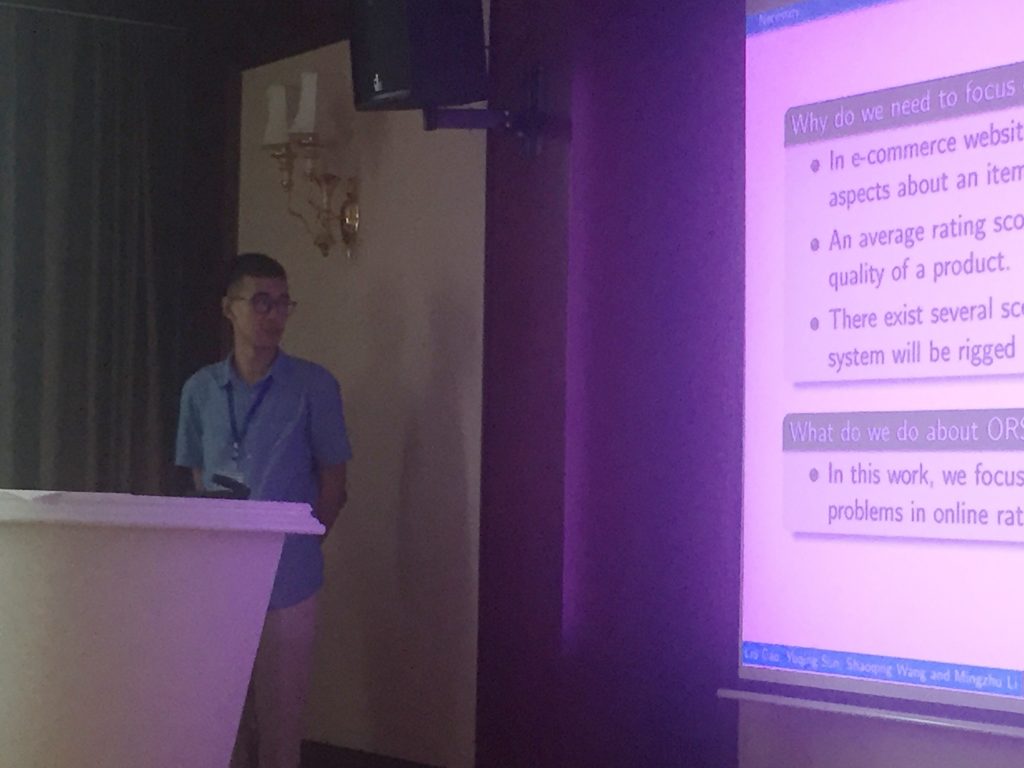曹琉同学参加第15届TrustCom会议
第15届 IEEE International Conference on Trust, Security and Privacy in Computing and Communications (IEEE TrustCom-16) 国际会议于8月23日至26日在天津召开。实验室研究生曹琉发表论文《Malicious Behavior and Collusion for Online Rating System》并在会议作口头报告。
该文章主要讲述了在线评价系统中存在的恶意评论,如电子商务网站中过分的好评与差评,对其造成的影响,并提出了根据用户评分行为,结合大众评分标准和用户历史行为信息,找出异常评分用户并进一步根据异常用户间的一致性及影响力等因素,查找其共谋用户组的问题解决方案。
Abstract—Since the collective ratings and reviews on an online rating system have a high influence on user decisions, there exist more and more fraudulent behaviors, such as “ballot stuffing” and “bad??mouthing”. Most of the current methods solve these problems by detecting one or a few malicious patterns. But they cannot solve these patterns simultaneously and cannot solve the case where dominating population on an item is malicious. In this paper, we investigate malicious behaviors and collusion from three aspects: the normal standards are learned from crowd behaviors rather than predefined patterns; a behavior anomaly is considered from both current and historical views; and the negative influence is also taken into account. We propose a set of metrics to comprehensively detect malicious behavior patterns. The User-Deviation metric detects how much a user is deviated from the crowds. The Behavior-Turbulence metric detects how different a user is from his/her historical behaviors, and the User Behavior Influence metric measures how much negative influence a user may cause. By orchestrating these statistical metrics, different user anomaly behaviors can be recognized. Compared with previous methods, our metrics can not only solve the problem that the major population is malicious, but also avoid misjudging characteristic people. Besides, we propose the collective behavior influence metric Kappa and coherence metric so as to evaluate collusion of a group of people. Our method is verified against some real datasets and the results show that it outperforms the existing models.


论文链接:Malicious Behavior and Collusion for Online Rating System
